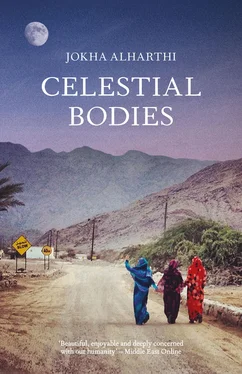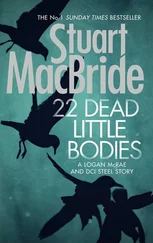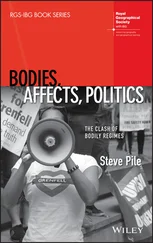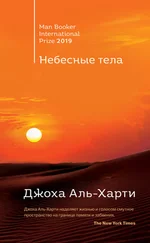What she saw now was not Nasir’s sweetness, the gentleness he could show, the way he did lose himself serving her and the children. She couldn’t see his loyalty, his perfect respect. She saw the birthing rooms, empty except for her moaning and the newborn. She saw the long mornings of pregnancy, as she lay there sick and cold. She heard the ringing of his telephone after midnight. She heard his whisperings and his sighs into the phone, she heard the screech of airplanes lifting off the runway, heading for Canada, year after year for an entire decade, never stopping. She heard the children’s screams, the clatter they made, and she felt the coldness of her bed creeping into her body. All of it, Khawla carried on her back, and the load grew heavier every day, and her back began to break.
Trying every possible argument, he begged her to take back her decision, but her ears were stopped up now. She no longer even heard his voice. She hadn’t heard his voice for a long time, in fact. He pleaded with her. Words that undoubtedly would have once melted her ricocheted against her eardrums like rusty bits of iron. The fault wasn’t in the words but in the years. In all those winter nights and summer days. The years dragged all of those words behind them and when the words tried to take root on her burdened back, the stony ground there threw them off. Or she ate them to the bone, the way some creatures consume their young. The years were live creatures. Khawla did not forget anything she had gone through, day by day, hour by hour, minute by minute, everything inside her sapping her spirit. Every day plunged another blade into the deep earth inside of her, turning it over mercilessly, sowing it. At the lowest point, at Khawla’s bedrock, there was no fresh soil fit for planting.
There were words she wanted to say to him. Anything at all, that would have been enough for me, anything that would have watered the fields of my heart and made them flower. Anything to fill those baskets held out to you. Only to you. Anything. A letter. Just a single page with one single word, in your handwriting. The ring of a telephone after midnight, a snatched dream in which you didn’t turn your back, a small step, a single slow turn to face me. Anything. Even an angry scolding! A sigh of exasperation. A cheap gift. Anything would have been a lot. But that anything never came. Nothing, ever. And now, everything is not enough. Everything is a lot less than a single bud, a single leaf unfolding in a field whipped by winter.
But she didn’t say any of it. How to say it, to a man who had spent the last ten years working himself hard to serve his home and children, how could he understand that the seed planted in those first ten years had suddenly erupted in her body, growing thorns that tore her into shreds?
We were on the shore at Sib. My Lexus was parked at one of the new lamp posts that vaguely resemble the Burj al-Arab in Dubai.
Muhammad was sitting next to me. He said she was being insanely jealous, and preventing him from doing what he loved. She was spying on him, looking at his phone. The car seemed to lean into the lamp post. Who? I asked Muhammad. Who is she ? He looked at me, startled. My wife, he said. Mayya.
I heard a faint laugh coming from the back seat. Suppressed and derisive, it was a laugh I knew very well. I brought my arm in from the car window and said without turning around, Don’t laugh at me, Papa. You aren’t even here any more. You died the year Muhammad was born. The laugh only grew louder and in the car mirror I saw my father’s white beard shaking.
Salim passed by the car window, running, followed by two young fellows, but older than he was, chasing him in a Porsche. I turned toward Muhammad but I found London, crying. Yes, Papa, she said. I am successful, yes. Muhammad was a baby in her lap, shaking his head hard in one of those endless jerky movements he always made. The car faded away and Muhammad and I were sitting on the beach. Muhammad looked like a totally ordinary strapping young man. He was whistling happily, and suddenly he said to me, I can’t stand it any more, Abdallah, her jealousy will kill me. I turned to him. Who is she? Who do you mean? My wife, he said. I grabbed the sleeve of his grey dishdasha. But you are still little, and you are sick, and you do not have a wife.
He screamed. My wife will kill me! She keeps her eyes on my phone, she surrounds me. He collapsed, still shouting. She is always bent over that damned sewing machine, she strokes it, but she never once bends over me. The saliva began to drip from his mouth as his hand made those repeated sharp nervous movements. I slapped him, saying over and over, Shut up, you’re making a scene, you’re scandalizing us.
My father snatched the whip from my hands. He threw it into the sea. But you are dead, Papa, I said to him. How can you come back like this?
He went away, not turning back once. I shouted after him. Take him with you, Papa! Take Muhammad with you.
Everything went dark. I heard the sound of my car starting, I heard it leaving. I caught a glimpse of London at the wheel. I scooped Muhammad into my arms. He is like a fish, Muhammad is, I suddenly thought. I walked down to the water. The waves were welling up, and I went in up to my chest. When I opened my arms Muhammad slipped away like a fish. And I came out of the water dry.
About Author and Translator
Jokha Alharthiis the author of ten works, including three collections of short fiction, two children’s books, and three novels in Arabic. Fluent in English, she completed a PhD in Classical Arabic Poetry in Edinburgh, and teaches at Sultan Qaboos University in Muscat. Celestial Bodies was shortlisted for the Sahikh Zayed Award for Young Writers and her 2016 novel Narinjah won the Sultan Qaboos Award for culture, art and literature. Her short stories have been published in English, German, Italian, Korean and Serbian.
Marilyn Boothholds the Khalid bin Abdallah Al Saud Chair for the Study of the Contemporary Arab World, Oriental Institute and Magdalen College, Oxford University. In addition to her academic publications, she has translated many works of fiction from the Arabic, most recently The Penguin’s Song and No Road to Paradise , both by Lebanese novelist Hassan Daoud.
Munir ‘Utayba, ‘Sayyidat al-qamar: Fitnat al-haki wa-alam al-tadhakkur’ (Sayyidat al-qamar: the allure of storytelling, the pain of remembering), in his Fi l-sird al-tatbiqi: Qira’at ‘arabiyya wa-‘alamiyya (On narration and critical practice: Readings in Arabic and world literature) (Cairo: al-Hay’a al-‘amma li-qusur al-thaqafa, 2015).












